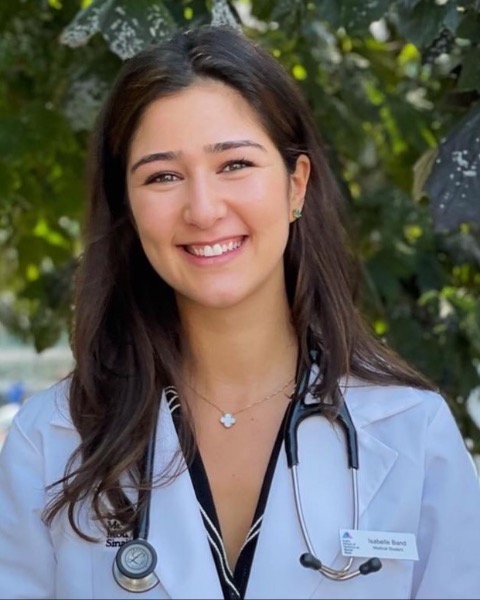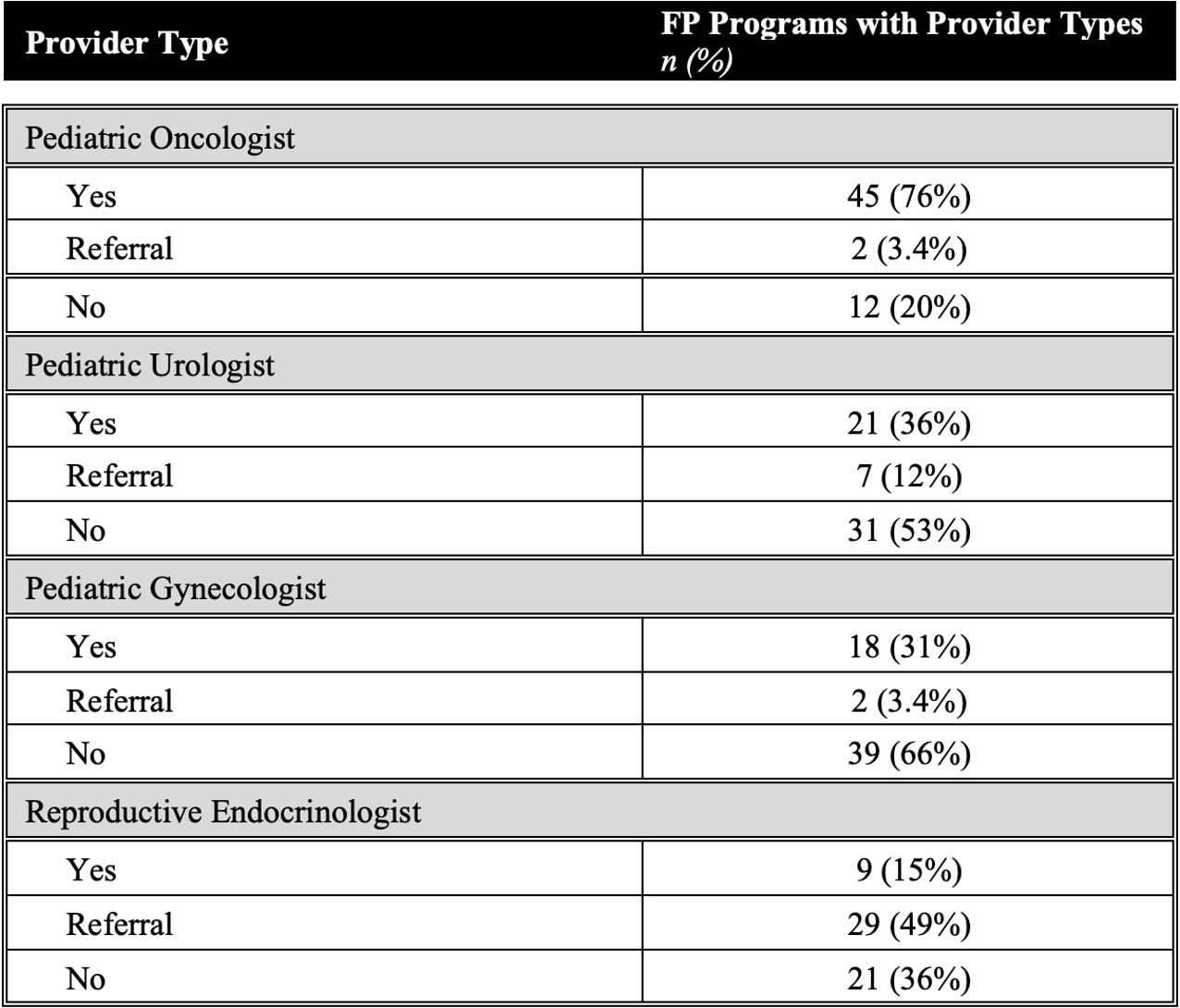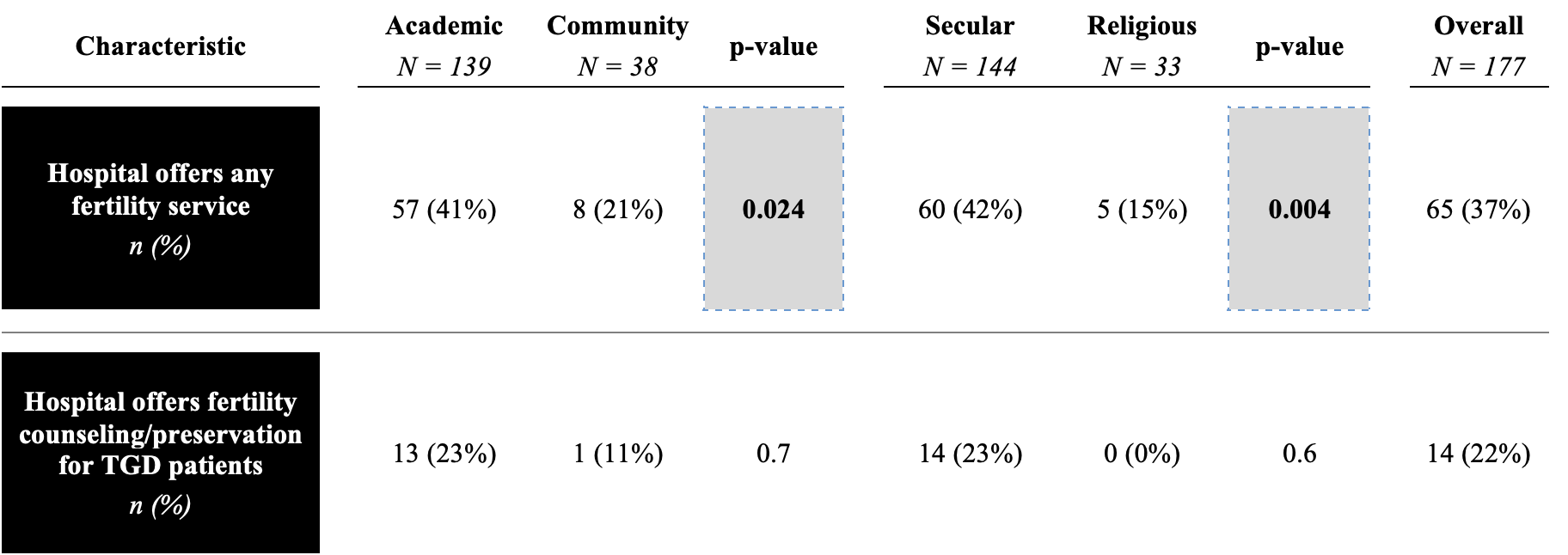Endocrinology
Session: Endocrinology
624 - Fertility Preservation and Family Building Strategies: Implications for Transgender Youth
Monday, May 6, 2024
9:30 AM - 11:30 AM ET
Poster Number: 624
Publication Number: 624.3007
Publication Number: 624.3007

Isabelle C. Band, BA (she/her/hers)
Medical Student
Icahn School of Medicine at Mount Sinai
New york, New York, United States
Presenting Author(s)
Background: There are an estimated 300,000 trans(gender) and gender diverse (TGD) youth (age 13-17) in the United States (U.S.). Because gender-affirming care impacts reproductive potential, counseling and fertility preservation (FP) (e.g., gamete cryopreservation) are critical. Hospital websites often serve as a primary gateway to access care.
Objective: To survey U.S. pediatric hospital websites for information about FP for TGD patients. Secondarily, to identify hospital characteristics (academic affiliation, religious affiliation, and geographic location) associated with higher likelihood of publishing TGD FP content on websites.
Design/Methods: All U.S. pediatric hospitals sourced from the Children’s Hospital Association excluding specialty hospitals (e.g., rehabilitation, orthopedic) were included (Table 1). In September 2023, two independent researchers systematically surveyed hospital websites for data including: geographic location, academic affiliation, religious affiliation, presence or absence of information about FP counseling/services in general and specifically for TGD patients, and the specialties of providers offering FP counseling/services. Fisher's exact and Pearson’s Chi-square tests were used as appropriate.
Results: Of the 177 hospital websites surveyed, 37% (n=65) published information about FP, largely in the context of FP for oncology patients (91%, n=59). Only 22% (n=14) of those websites mentioned directly providing or providing referrals to FP services for TGD youth (Table 1). Most FP programs included a medical oncologist (76%, n=45) while fewer included a urologist (36%, n=21) or reproductive endocrinologist (RE) (15%, n=9). About half (n=29) referred to affiliate REs for FP (Table 2). Across U.S. census geographic divisions, the presence of TGD FP content on websites ranged from 0%-2% in the Southern divisions to 20% in the New England division (median=10%). Secular (p=0.004) and academic (p=0.024) hospitals were significantly more likely to include FP content on their websites (Table 3).
Conclusion(s): Our findings highlight a significant gap in access to information about FP for TGD youth on U.S. pediatric hospital websites, especially in Southern divisions. While over one third of U.S. pediatric hospitals offer FP to oncology patients, a minority offer FP to TGD youth or include REs, who specialize in FP for patients with ovaries. Access to information about FP options and procedures is of tantamount importance to TGD youth who may desire to use their DNA later in life to build families.
.png)


